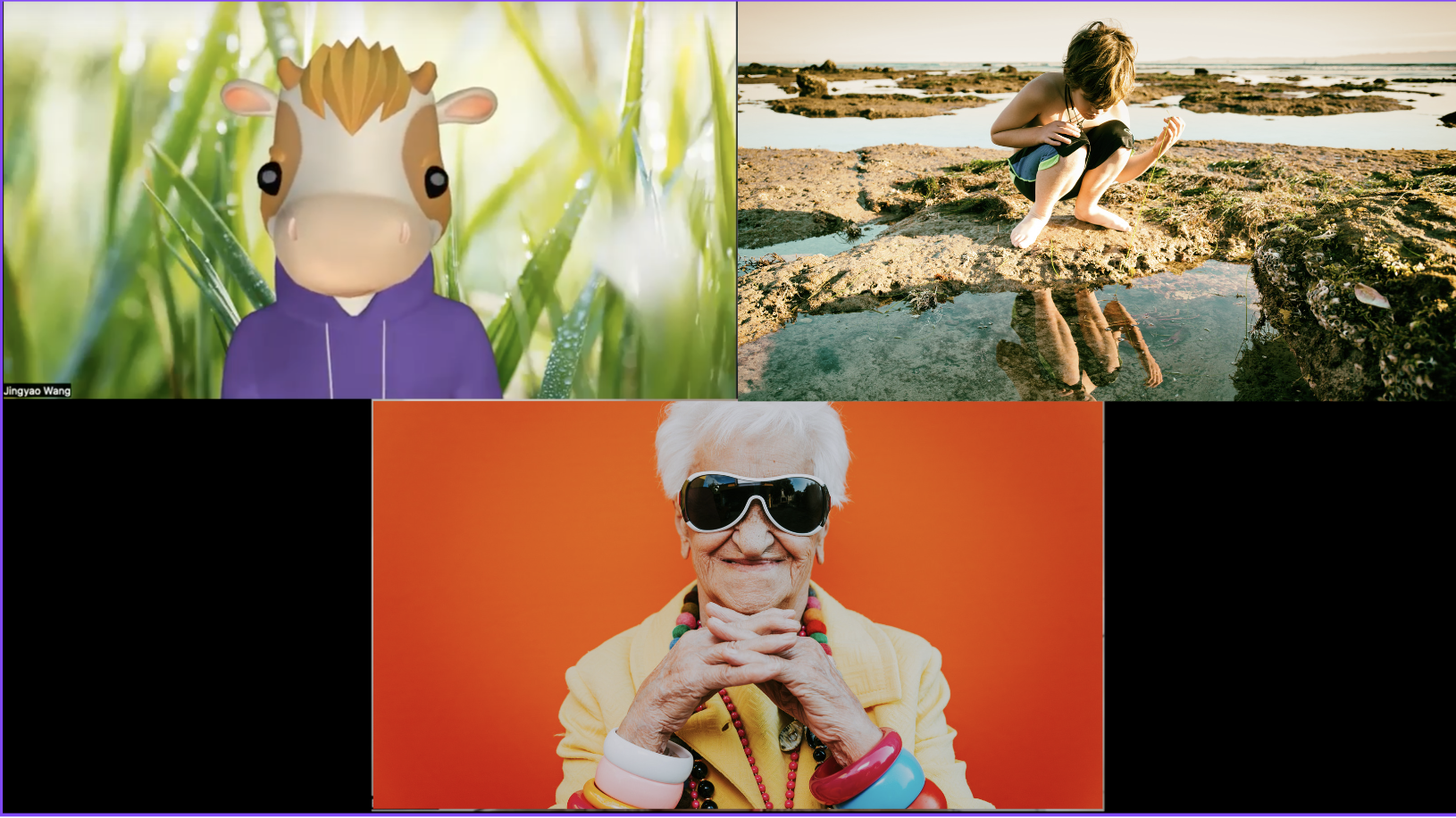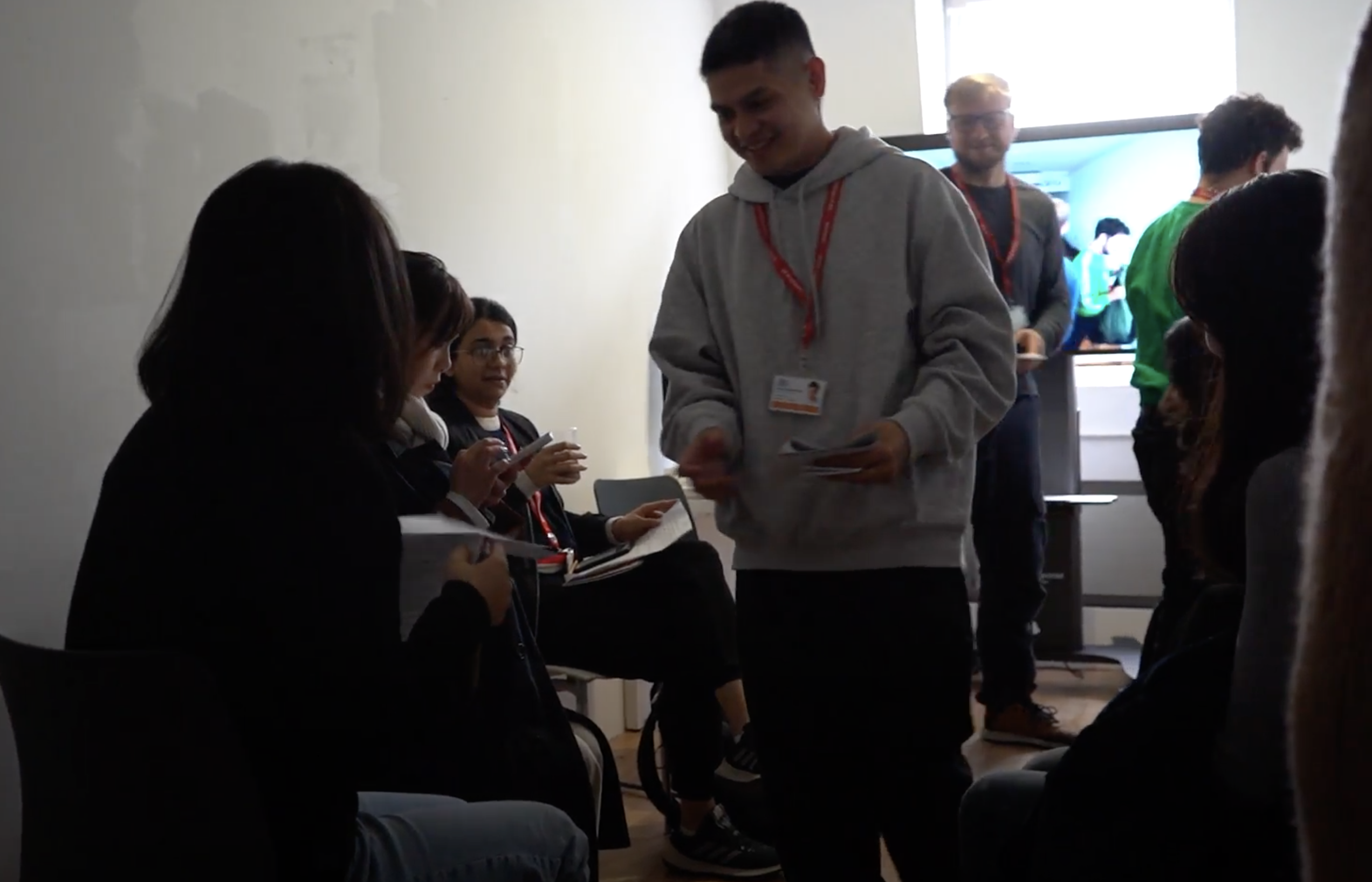Can VR Help Cheer Up Grandma and Grandpa?
2023

As humans, we are all subject to the natural process of aging.
This inevitability makes the issue of addressing elderly sadness and mental health concerns crucial for societies worldwide.
Can virtual reality (VR) technology effectively alleviate elderly sadness and improve their mental well-being, considering the growing prevalence of loneliness, the limitations of traditional approaches, and the need for stimulating interventions?
Royal College of Art
MA Service Design
This inevitability makes the issue of addressing elderly sadness and mental health concerns crucial for societies worldwide.
Can virtual reality (VR) technology effectively alleviate elderly sadness and improve their mental well-being, considering the growing prevalence of loneliness, the limitations of traditional approaches, and the need for stimulating interventions?
Royal College of Art
MA Service Design
In recent years, virtual reality (VR) technology has gained significant attention for its potential in various fields, including healthcare. As the global population ages, mental health concerns among the elderly, particularly sadness and depression, have become increasingly prevalent.
Using basic materials and simple mock-ups, we developed tangible representations of VR environments and interactions. These included physical models, storyboards, and even static images to convey the intended VR experience. The prototypes aim to capture the essence of the immersive and engaging qualities of VR while keeping costs and complexity minimal.
To gain deeper insights into the potential impact of virtual reality (VR) on alleviating elderly sadness, a testing phase was conducted involving students who aimed to represent their grandparents. This approach allowed for a more empathetic understanding of the experiences and challenges faced by the elderly population.
 Our supposition revolves around the idea that the students who are currently testing the potential of virtual reality (VR) in alleviating elderly sadness will be the ones who witness and experience the full potential of VR when they reach old age themselves.
Our supposition revolves around the idea that the students who are currently testing the potential of virtual reality (VR) in alleviating elderly sadness will be the ones who witness and experience the full potential of VR when they reach old age themselves.
As VR equipment is not readily available or feasible for the testing phase, Zoom filters were utilized to replicate the visual elements associated with VR experiences. These filters provided a way to overlay virtual environments and effects onto the participants' live video feed, creating a simulated VR-like experience.

Participants were encouraged to provide feedback on their experiences using Zoom filters. Their observations and insights were collected through interviews or questionnaires, focusing on their emotional responses, sense of engagement, and the effectiveness of the simulated VR-like interactions in addressing elderly sadness.
*We noted that while Zoom filters provided a convenient way to approximate VR experiences, it is important to acknowledge their limitations. The simulated VR experiences through Zoom filters lacked the full sensory immersion of traditional VR, such as haptic feedback or three-dimensional depth perception.
Virtual reality (VR) technology holds promise in addressing mental health challenges, such as sadness and depression, among the aging population. By creating engaging experiences, fostering social interaction, promoting stimulation, providing emotional therapy, and enhancing empathy, VR can significantly reduce elderly sadness. However, further research and development are necessary to fully harness its therapeutic benefits.
With advancements, VR has the potential to improve the well-being and quality of life of the elderly, becoming an integral part of mental health interventions.